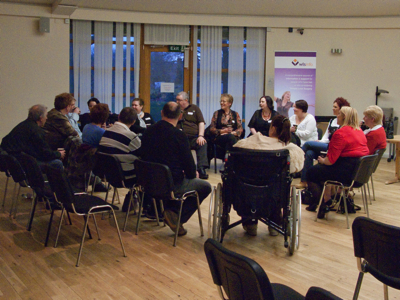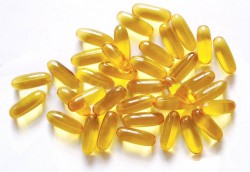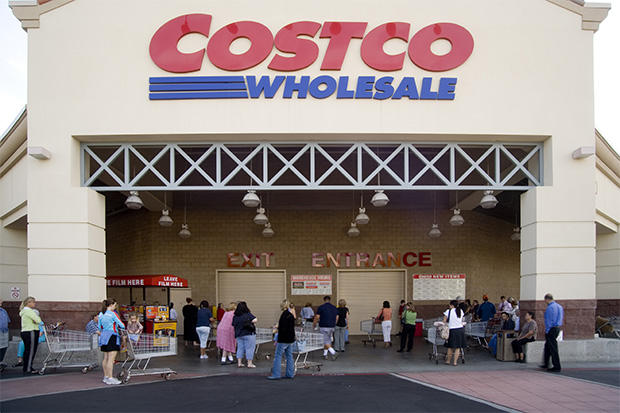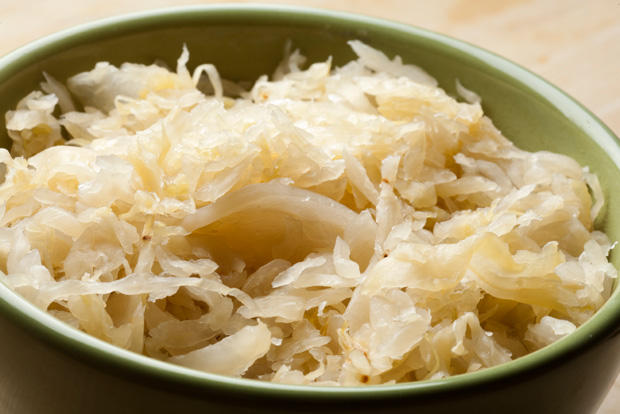How to Gain Weight When on Dialysis
Whether you’re new to dialysis or have been a dialysis patient for years, there are probably times when you struggle to keep enough weight on. Chronic kidney disease (CKD) and end stage renal disease (ESRD) can both cause weight loss. Symptoms like nausea, vomiting and lack of appetite make it difficult to eat.[1] Specialized nutritional needs limit the types foods and drinks you're able to consume and can make weight gain more challenging. Changing your diet and modifying lifestyle factors can help ensure you consume a healthy diet while helping you gain weight.
Steps
Part 1 Increasing Calories on a Dialysis Diet
-
1
Talk to your registered dietitian. Many dialysis centers offer dietitian and nutrition education services to their patients. Speak to to your RD about about gaining weight in a safe and healthy manner.
- Ask your dietitian about what amount of calories you should add in each day to help you gain weight. It's not ideal to gain large amounts of weight quickly.
- Also speak to your dietitian about the best ways to add calories to your diet. As a dialysis patient, your food choices will be limited.
- You may even want to ask for a weight gain meal plan from your dietitian to give you a more specific idea about what to do.
-
2
Increase your calories. In order to gain weight, you'll need to increase your overall calorie intake. Slowly add calories each day and monitor your weight closely.
- In general, you want to gain a little amount of weight each week. It's not ideal to gain weight rapidly or use high fat, unhealthy foods to help you gain weight.
- Add in 250-500 calories daily. This will result in about 1/2-1 pound weight gain a week.[2]
- Dialysis increases your daily calorie needs. You'll need to account for this in your calculations.[3]
-
3
Eat frequent, small meals. If food seems unappealing to you, it might be easier for you to eat small snacks and meals throughout the day instead of sitting down for two to three large meals.
- Many times, dialysis patients suffer a loss of appetite after regular dialysis treatments.[4] The causes of appetite loss are many in dialysis, but should be noted and relayed to your dietitian and doctor.
- If you're not interested in foods or eating, try having just a few bites of a snack or meal. It's better to get in a few calories, than skipping the whole meal.
- You can choose to eat 5-6 small meals a day or do a combination of larger, more regular meals with smaller snacks.
-
4
Eat more "free" foods. In reference to dialysis and kidney disease, "free" foods are foods that add calories to your diet without adding any extra sodium, potassium, or phosphorus to your blood.[5]
- Free foods include: simple carbohydrates, like sugar, honey, jelly, syrup, and jam. They also include: vegetable fats like margarine and vegetable oils and non-dairy creamers.[6]
- Sucking on hard candy throughout the day can help ease your nausea and boost your appetite, and the candy itself also provides you with extra calories.
- Drizzle honey or sugar in beverages to sweeten them. Also drink beverages that contain sugar as a sweetener.
- Put margarine or vegetable oils on all your meals and snacks to help increase calories.
-
5
Choose foods that are high in calories. Consuming calorie dense foods helps you easily gain weight. Find ways to increase the overall calorie count of the foods you do eat.
- High calorie foods that are generally safe for patients on dialysis include: cream cheese, half and half, sour cream, and cream.[7]
- Try incorporating these higher fat foods in ways like: using heavy cream in coffee, cereal or to drink or add sour cream to scrambled eggs or as a topping to your meals or snacks.
- Dessert is encouraged during dialysis, but you should stick with options that also help your nutritional needs. Puffed rice treats, plain wafer cookies, puddings made with non-dairy creamer, and cobblers or pies with allowed fruits are usually safe options.[8]
-
6
Use supplemental drinks, powders, and bars. Protein drinks, protein bars, and protein powders can be mixed into other drinks or foods all provide you with additional protein and calories.[9] Using these in addition to your meals may help you gain weight more easily.
- For best results, look for nutritional supplements specifically designed for people on dialysis since these contain the right balance of protein and minerals for your specific needs.
- Note that your doctor may prescribe some of these supplemental drinks and foods for you, especially if you have a low albumin level.
-
7
Avoid high concentrations of potassium and phosphorus. Even if you're trying to gain weight, you still need to minimize your consumption of potassium and phosphorus from your diet.
- Healthy kidneys can filter out some of the phosphorus and potassium in your blood, but when your kidneys are damaged or weakened, these minerals can build up and become toxic.[10]
- Too much phosphorus can lead to heart damage and osteoporosis. Similarly, too much potassium is also very dangerous for your heart.
- While phosphorus is in nearly everything you might eat, certain foods, like dairy products, container higher concentrations of it and must be avoided.
Part 2 Making Lifestyle Changes to Help Promote Weight Gain
-
1
Include moderate amounts of aerobic activity. Being physically active is important to overall health. However, vigorous intensity or high quantities of physical activity might not be suitable for dialysis patients who are attempting to gain weight.
- Fatigue and exhaustion are common side effects of dialysis. However, most health professionals recommended small amounts of activity. For example going for a 15 minute walk.
- Make sure to talk to your doctor prior to starting any exercise program. Go slowly and stop immediately if you experience any pain or discomfort.
- Refrain from high intensity exercise or working out for long periods of time as this may counter act your weight gain goal.
- Being active, even if only for short periods of time, can help dialysis patients feel better and improve their overall quality of life.[11]
-
2
Include light strength training. Another side effect of dialysis is muscle wasting or loss of lean muscle mass. Strength training can help minimize this effect.[12]
- Include light strength training exercises like: using resistance bands, doing yoga or modified weight lifting. Seek the help of a personal trainer or exercise specialist for more specifics.
- Dialysis patients who included regular light resistance training saw improvements in muscle mass, strength and quality of life.[13]
-
3
Manage stress and other emotions. It's normal and common to feel stress, anger and even depression if you're receiving dialysis. Decreased appetite may result from some or all of these emotions.[14]
- Receiving dialysis is a big lifestyle change that requires you to make a variety of dietary and lifestyle changes. Managing these changes the best you can may help minimize any appetite suppression related to them.
- Use your resources available at your dialysis center (like the social worker) to help you manage your personal life, medications and treatment and emotional health.
- Consider seeking the help of a behavior therapist, life coach or psychologist for additional guidance.
Part 3 Seeking Professional and Medical Help
-
1
Talk to your doctor. You need to work with your dialysis team regularly. Those health professionals will be able to help you manage your health, diet and weight gain.
- Typically dialysis teams are made up of a qualified nephrologist, dietician, and social worker.
- Regarding matters of weight gain and diet, your dietitian is the most important person to consult. He or she has been educated about renal failure and can teach you more about the best foods to eat for your new dietary needs.
- Your nephrologist is the doctor who specializes in your kidney health. You will need to work closely with him or her throughout your treatment and must consult him or her on every aspect of your disease and recovery, including the dietary aspect.
- A social worker who works at the dialysis center might be able to provide you with dialysis cookbooks and recipes. He or she can also get in touch with agencies that will help you get the food you need if finances are an issue for you.
-
2
Ask for an anti-nausea medication. Dialysis can sometimes cause severe nausea. Many times this is a big reason behind your weight loss and difficulty reaching or maintaining a healthy weight.
- Consult your nephrologist and ask for a prescription anti-nausea medication. Taking these regularly may help you eat more regular meals and feel more motivated to eat.
- If you're feeling nauseous make sure to tell your dialysis team. Also try to keep something in your stomach. Items like saltine crackers can help calm your stomach.
- Over-the-counter medications can be risky if you do not clear them with your doctor first.
-
3
Get a prescription for renal multivitamins. To help address your nutritional needs, your nephrologist might recommend the use of a special multivitamin for improved renal health. This will be especially helpful if you're not eating well or have little appetite.[15]
- Renal vitamins are designed for patients with CKD, ESRD and/or are on dialysis. They are a safe form that will not cause any harm to your kidneys and other organ systems.[16]
- Note that you should not rely on renal multivitamins alone. Your body absorbs most nutrients better when taken from food rather than an artificial substance.
- Multivitamins can help prevent malnutrition and ensure you're meeting the daily recommended values of most essential nutrients. They are not be enough to help you gain significant amounts of weight.
- Do not take any over the counter vitamins, minerals or herbal supplements without clearing them with your doctor first. They can cause significant harm or damage if they are not appropriate for you.
-
Get The Weight Loss Tips That Work
TIP! Eat six smaller meals instead of three large meals. You&
-
The All You Can Eat Fresh Fruit & Veggie Weight Loss Diet
TIP! Being conscious of the foods you eat, and writing them a
-
Weight Loss Tips 7
It is possible to lose weight. If it were not true we would not see
-
How to Detox Your Body
On an every day basis, you can make changes in your diet and env
-
Are Weight Loss Pills Worth It?
Whether you want to lose a few pounds or a significant amount of
-
Weight Loss Tip #68 – Try kickboxing to burn fat and tone your body
- DON'T MISS
- All You Wanted to Know About Hoodia Gordonii
- Would You Measure Every Single Thing Youll Ever Eat For The Rest Of Your Life If It Means The End Of Your Food Addiction?
- 8 Simple Tips to Lose Weight
- Weight Loss Tips To Keep You In Shape
- How to Lose Water Weight Fast
- 4 Ways to Lose the Weight and Stay Stress-Free
- 300 Weight loss Tips
- The 12 Best Foods To Eat When You Hit A Weight Loss Plateau
- Hair Loss: A Guide To Preventing It
- Get Paid To Lose Weight!




